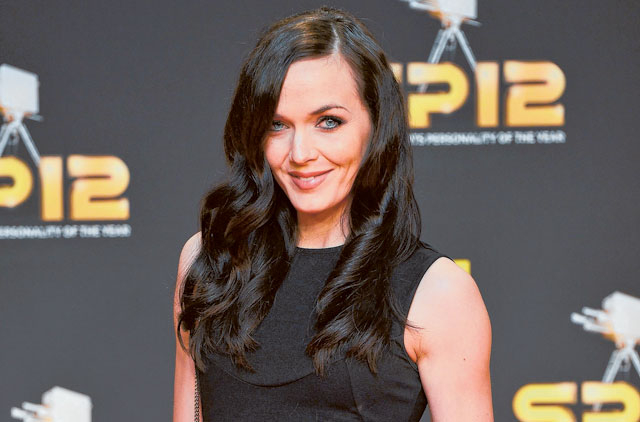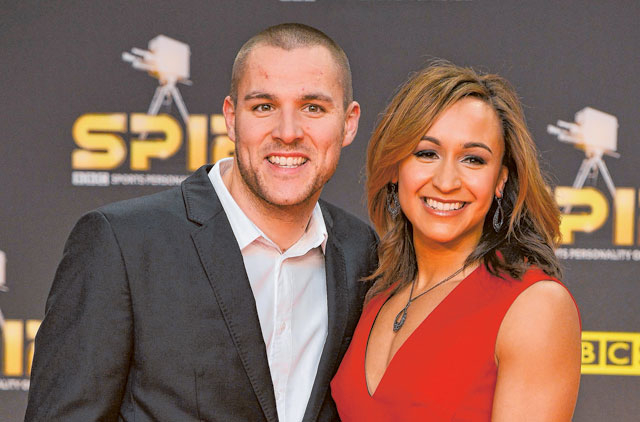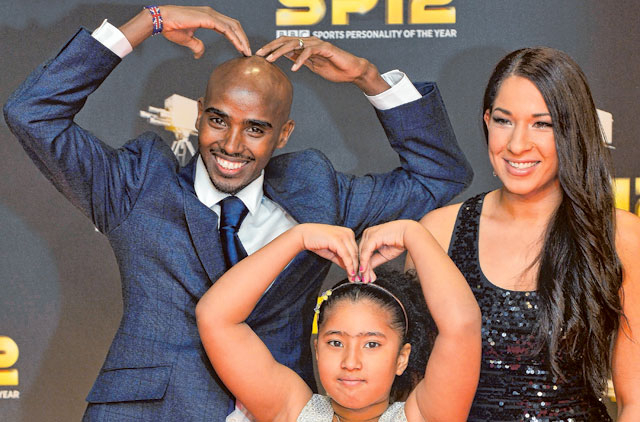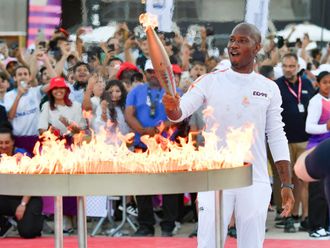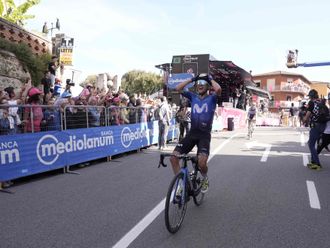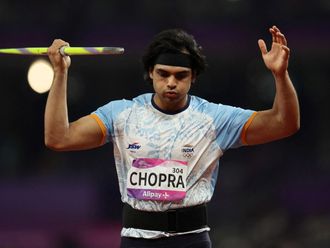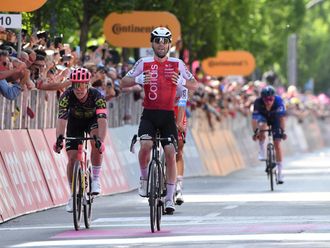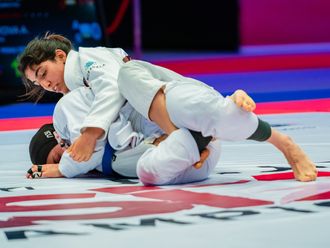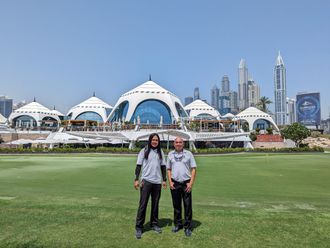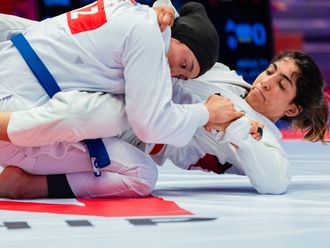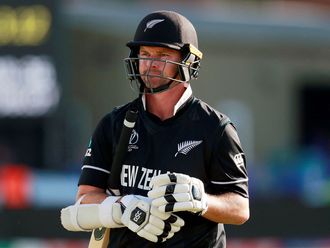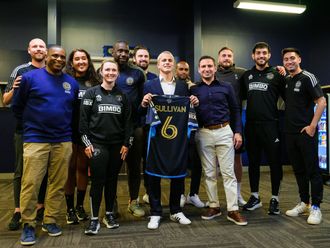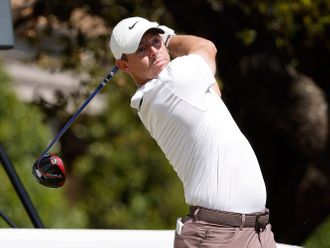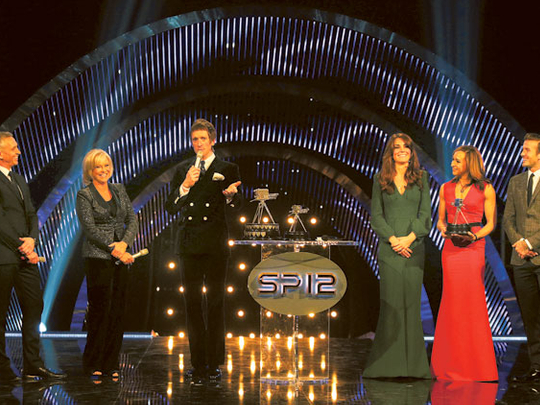
In winter, Bradley Wiggins goes right to the heart of what was so inspiring about the summer of sport. All those beaming champions, he says, were telling the British public: “You can do the same thing. Why not? That’s what this summer did. We’re all just normal people. Normal people who’ve become great at what they do. That’s all you need to trigger the next generation.”
Wiggins, who on Sunday won the BBC Sports Personality of the Year award, is not reciting any party line. The 2012 Tour de France and Olympic time trial champion is no politician, no Establishment poster boy, which is why his knighthood, when it comes (which it surely will), will not rest easily in his mind.
“It would be an incredible honour but I’d feel uncomfortable with people calling me ‘Sir Bradley’,” he said at Team Sky’s training base in Majorca. “I won’t insist on people calling me it. It’ll be an amazing thing to have and to go through that ceremony: recognition, the highest you can get, but I won’t use the title, probably.”
Wiggins, or ‘Wiggo’ as he is to devotees of cycling, is the notional fourth member of The Jam, the lad from Kilburn with the quips, sideburns and beautifully aerodynamic posture in the saddle. Success is loading pressure on him to conform, to join the aristocracy of Coe and Hoy, to ease back on the booze between challenges and not raise his middle digit to photographers besieging his house after a recent accident on the roads of Lancashire.
Mind you, even that little flash of indignation produced a comic gem from the Wiggins household. What did the paparazzi expect, his wife Cath asked in a tweet? “A Keats recital?”
Like all this year’s idols, Wiggins has spent the last few months disorientated and craving normality. The first British cyclist to win the Tour de France, and the proud holder of seven Olympic medals (four of them gold), he seems stalked by a fear that fame will rip him away from his roots, from the humility he feels was at the core of Britain’s great Olympic effort.
“I’ve achieved what I’ve achieved and I accept what I’ve achieved. But I don’t think that makes me better than anyone else,” he said before returning to London for Sunday’s ceremony. “People’s perceptions of you change. I’m still the same person that was sat in this room 12 months ago.
“I said a lot during the Tour and in my film [a documentary] that I’m determined not to change. People expect you to because you’ve achieved all these things. I don’t feel I should have to. Half the appeal is that people feel they can associate with you. They can understand your story: the bloke-next-door sort of thing.
“I can’t stand the word celebrity and I despise everything about it. It’s different from being recognised for being good at something, which I accept in our society, and is nice. I’ve had people coming up to me and saying, ‘You changed my life, I got my bike out of the shed and I’ve lost five stone.’ People say that to me. Brilliant. That’s what it’s all about.
“But if people say I saw you on Big Brother or in the jungle, it’s not something that appeals to me. Our country is fascinated by it as well. It’s a disgusting part of our society. It does nothing for our society. This summer did more for our country in terms of inspiring people and having real sporting heroes for people to look up to and kids to be inspired by.
“Look at the atmosphere around London, the whole country. Then you watch ‘In the Jungle’ [as he calls I’m a Celebrity...Get Me Out of Here] and it’s pathetic.”
Talking to the world’s No.1 cyclist confirms impressions gained from watching him in his masochistic pedalling and reading about his spells of introspection, drift and drinking. By now the world knows that his father Gary, a journeyman pro cyclist who gets short shrift in his latest autobiography, abandoned the family when Wiggins was two, but somehow left behind an obsession with bike racing.
It would be to leap into amateur psychology to ask if Wiggins is chasing his late father’s ghost out on those roads, but we can at least be sure that his life is a mountain range of pain and triumphs. One of his darker episodes, before he dedicated himself to the Tour win, was the death of his grandfather George, who had helped bring him up in his father’s absence, and whose passing sent Wiggins into one of his spirals.
“It’s only when time passes and you look back and think, ‘Look at how I was behaving’,” he says. “As men, you just think, no I’m all right, I’m OK. You wouldn’t want to admit it to people around you because you wouldn’t want to look weak.
“It’s quite hard to admit to yourself: I’m struggling at the moment, I’m not coping very well, because people expect you to. Women break down and cry whereas men don’t do that. I’m the oldest male in a family of a lot of women, so I was there comforting my nan and my mother. I felt I had to be strong.”
In the recovery, maybe, was the seed of his decision to adopt an austere new regimen and fulfil his potential on the roads after a stellar track career: “It was starting to realise what’s important. It was me thinking: this has put things into perspective and I can only try my hardest. It spurred me on in that sense. To apply myself, get organised. Grow up a bit.”
— The Daily Telegraph


